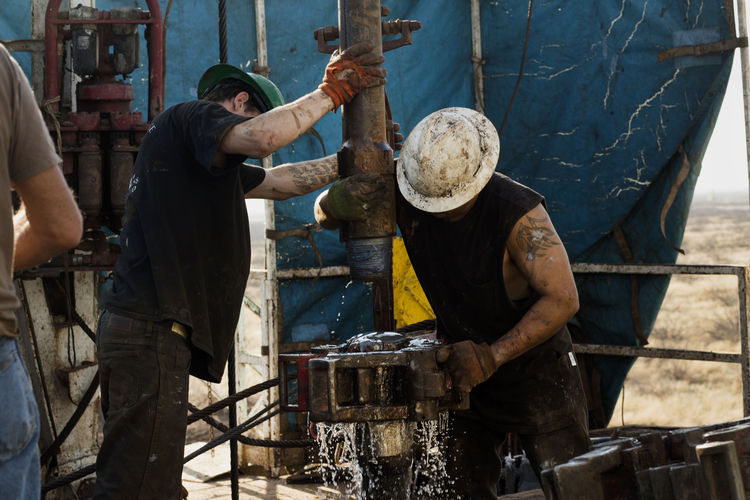- Oil Workers Suspend Strike
The Nigeria Union of Petroleum and Natural Gas Workers on Wednesday suspended its three-day nationwide warning strike after a meeting with officials of the Federal Government.
NUPENG commenced the strike on Wednesday morning over unresolved issues, including pay and job loss disputes with some International Oil Companies operating in the country, after a 21-day ultimatum given to the Federal Government to intervene and resolve the issues.
The Petroleum and Natural Gas Senior Staff Association of Nigeria similarly dropped its planned industrial action over similar complaints in the oil and gas sector. The association had issued a two-week ultimatum to the government to resolve the issues.
The two unions took the decision to shelve the industrial action after a five-hour meeting with the Federal Government’s delegation led by the Minister of Labour and employment, Dr. Chris Ngige, and representatives of multinational oil companies in Abuja on Wednesday.
“All issues have been addressed one after the other. We are very satisfied with the commitment shown,” the President, NUPENG, Mr. Igwe Achese, said after the talks.
Ahead of the meeting with the Federal Government, the Chairman, NUPENG, South-West zone, Alhaji Tokunbo Korodo, had told our correspondent, “All loading activities have been halted; so there is no fuel coming out of any depot. There is total compliance (with the directive to embark on a strike) by our members.”
NUPENG is one of several labour unions that have criticised oil companies for sacking workers in the last few months.
“Filling stations, petrol tankers and all NUPENG members are involved,” Reuters quoted the Warri Zonal Chairman of NUPENG, Mr. Cogent Ojobo, as saying.
The union had said the strike would last for three days and involve around 10,000 workers.
Ahead of the meeting with the government, Ojobo said, “If the issues at stake are resolved and a communiqué signed, the strike will be called off.”
He also said workers had gone on strike at seven crude oil flow stations in and around Oleh, a town in Delta State, which is in the Niger Delta.
“Seven flow stations belonging to Nigerian Petroleum Development Company were shut by the workers and they are still shut,” Ojobo said, adding that the workers, who are employed by contractors, had not been paid.
Nigeria has been hit hard by a slump in crude oil prices in the past two years, which helped to push the country into recession. A wave of militant attacks in the Niger Delta oil hub throughout 2016 hampered production.
The spokesman for the Nigerian National Petroleum Corporation, Mr. Ndu Ughamadu, said checks were being made to establish whether the Niger Delta flow stations had been affected.
Last week, NUPENG held a strike at Total’s fuel depots in a protest over sackings, but it was suspended after one day after an agreement was reached.

 Forex2 weeks ago
Forex2 weeks ago


 Naira2 weeks ago
Naira2 weeks ago
 Billionaire Watch1 week ago
Billionaire Watch1 week ago
 Company News4 weeks ago
Company News4 weeks ago




 Naira2 weeks ago
Naira2 weeks ago




 Naira1 week ago
Naira1 week ago




 Naira4 weeks ago
Naira4 weeks ago
 Nigerian Exchange Limited4 weeks ago
Nigerian Exchange Limited4 weeks ago






















